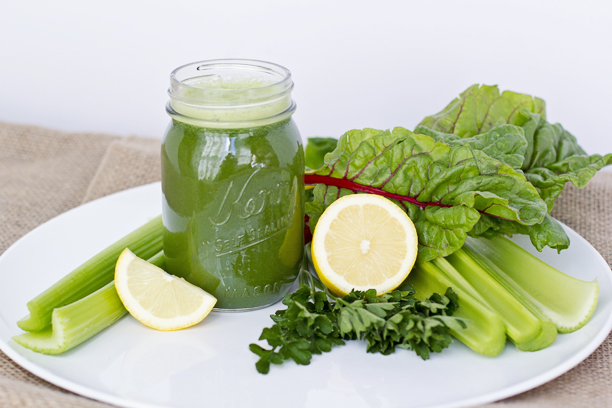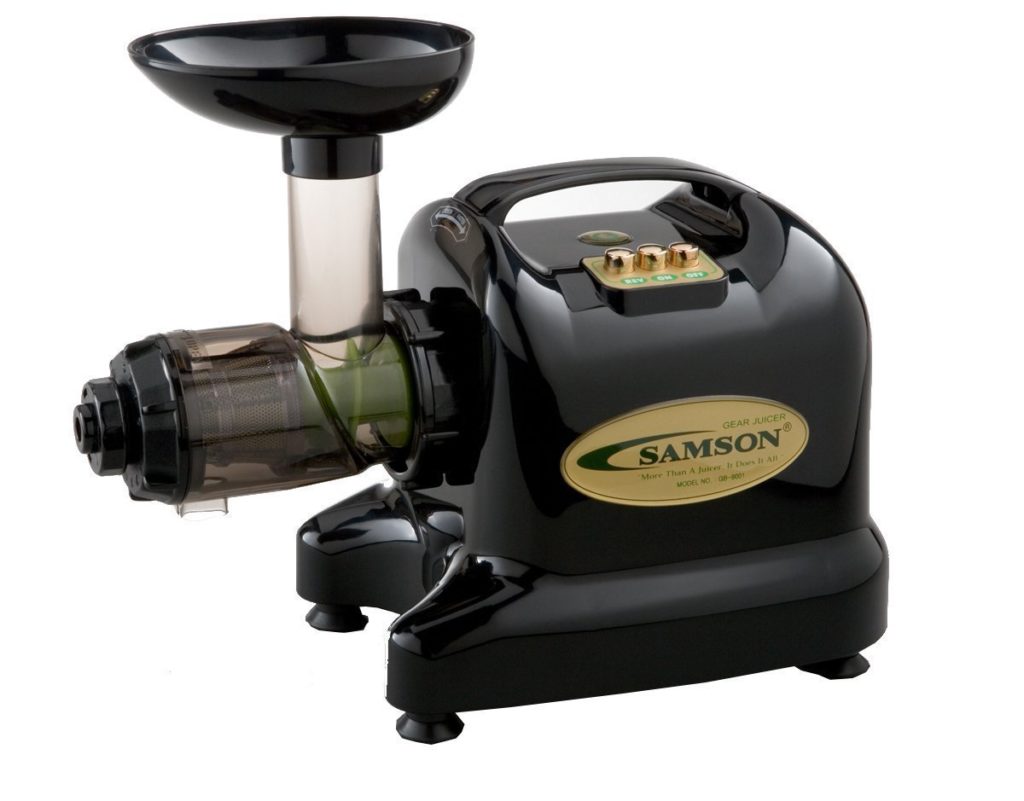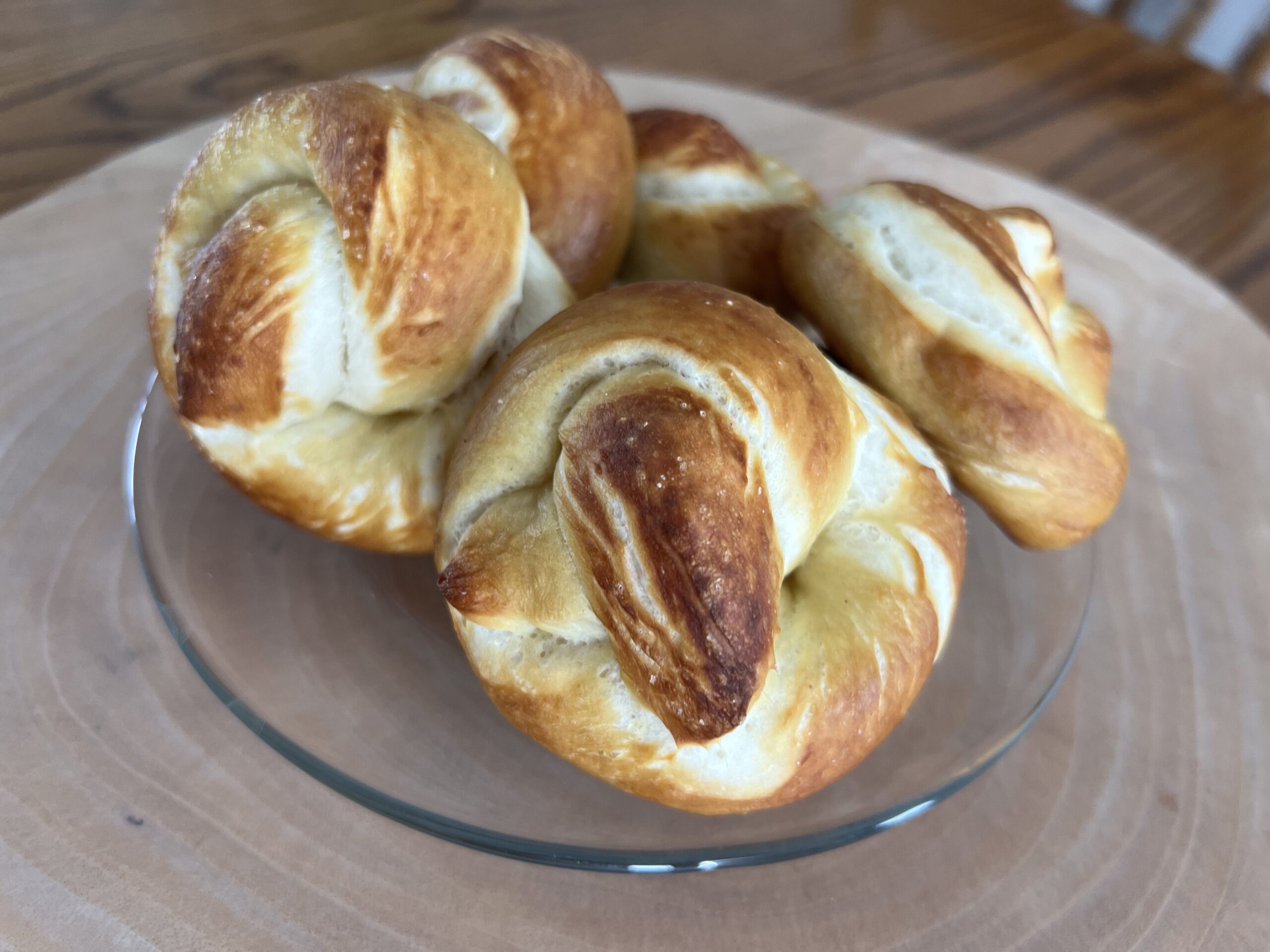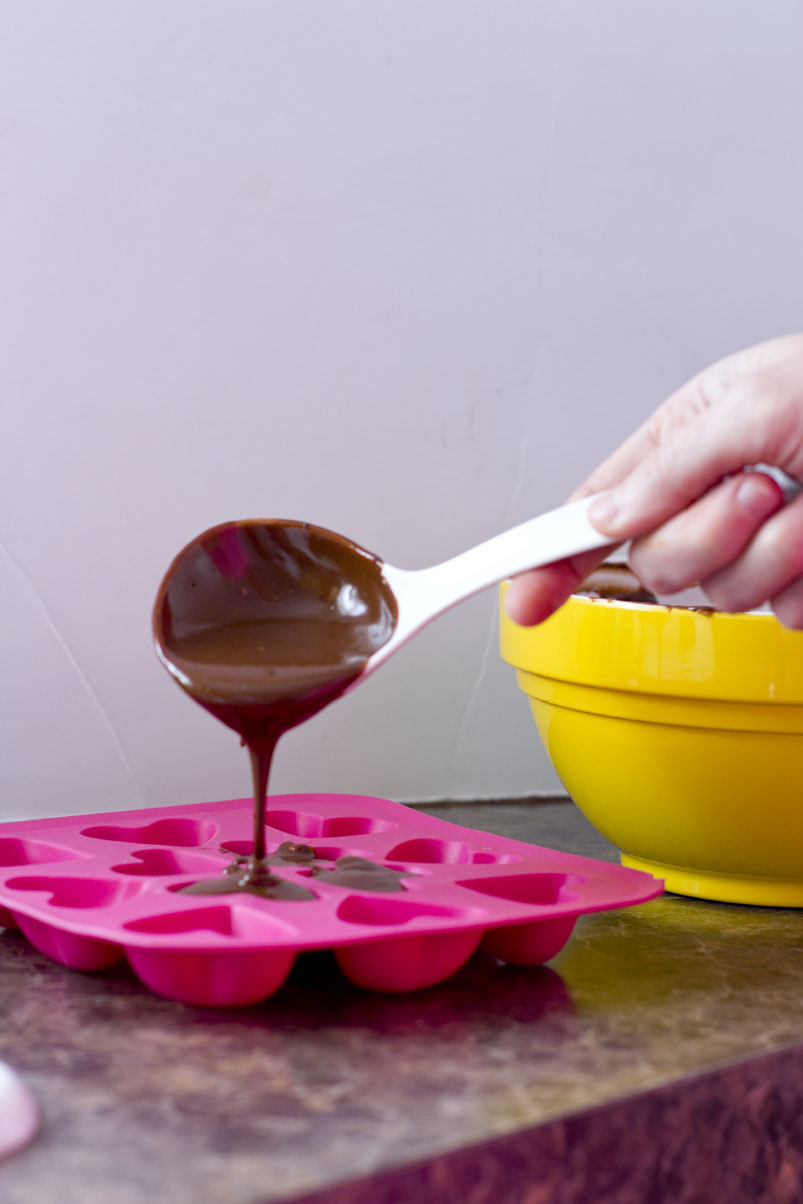[disclosure]I have been using my juicer for 4 years now, almost daily, and it’s still going strong. I love it and often refer people to this post on why I chose my juicer!
I spent months and months doing all of the research I could behind juicing and juicers. I found out right away that I didn’t want a centrifugal juicer, I wanted a masticating one. I’ll go into the difference shortly. After making that big decision, I almost gave myself a migraine trying to decide which masticating juicer was the best one for me. After reading review after review after review, and comparing a few different brands, I decided on the Samson 6-in-1 wheatgrass juicer.
The difference between centrifugal and masticating juicers:
Centrifugal:
• Fruits and vegetables are thrown down a chute, and are then ground quickly by a rapid spinning action of the blade.
• The juice is extracted from the pulp via the spinning motion. The juice then runs down the chute and the pulp is ejected.
Masticating:
• Masticate means to chew, or grind, into a pulp (much like we do when eating).
• This juicer chews or grinds the fruit/vegetable and then squeezes the juice out through a slow, grinding motion.
• There is an auger that pushes the food along as it slowly grinds it and the juice is squeezed out.
Here is what that all means (and the difference is like night and day):
• Centrifugal juicers are noisy and work at very high speeds. Though they may juice the rind of a pineapple more efficiently, the low speed of the masticating juicer allows you to juice more veggies with greater efficiency.
• Masticating juicers are a lot quieter (I was amazed at how quiet it was the first time we tried it). They are also less messy, and a lot easier to clean. It takes me about 2 minutes to clean ours every time. I love it.
• Masticating juicers are particularly great at juicing leafy greens. This was a feature I looked for in my juicer, as I wanted the maximum benefits from spinach, kale, parsley, cilantro, etc. Centrifugal juicers don’t get near the amount of juice from greens. Some masticating juicers require a separate attachment for juicing greens, so make sure you pay attention to that fact. I wanted one that didn’t, and apparently the Samson is one of the best for this.
• Many resources say that the high speeds of a centrifugal juicer can damage or even kill the enzymes in the juice. The high speed causes oxidization (air bubbles get into the juice as its juicing) which causes the juice to spoil quickly. Juice from these juicers can’t be effectively stored for any amount of time, and should be drunk immediately. Our juice can be stored for up to 48 hours while retaining most nutrients, but I don’t like storing it longer than a few hours anyway.
• One major difference is that masticating juicers use FEWER vegetables, to produce MORE juice. So you are spending less on vegetables and fruit than you would with a centrifugal juicer, and making less waste. The pulp from a masticating juicer is almost completely dry, meaning you are getting the most possible juice from your produce.
• A factor that really drew me into our particular juicer and masticating juicers in general was the versatility. Because a masticating juicer can squeeze the items put into it, you can use it for many different purposes. Some things you can make with a masticating juicer that can’t be made with a centrifugal juicer: baby food, fresh pasta, grinding/mincing meat along with spices/seasonings for an instant meal, grinding coffee beans and spices, making nut butters, and frozen sorbets/ice cream. These features make me really happy.
As you can tell, there is a significant difference between the two. Centrifugal juicers are the most popular right now, due to the media coverage and films such as, Fat, Sick, & Nearly Dead. People watch the show, see the juicer (Breville), and run out to buy one without doing their own research.
I wanted to share the information that I found so that those who might be interested could read it and make their decision from there. If you are looking for a lifestyle change that will affect you now and in the future, it’s well worth the investment to buy a masticating juicer. Besides the fact that they use fewer vegetables and produce more (some would even say more nutritious) juice, they have longer warranties and are built to last.
I don’t mean to say that centrifugal juicers are bad; they just serve a different purpose. For us, the masticating juicer was the best choice for what we wanted out of a juicer.








Thanks for explaining the differences! 🙂
Both great choices but something to note, the masticating juicers take A LOT more prep work before you actually start juiceing and juice very slowly in comparison. This is not a bad thing and you see the rewards in the amount of juice but for busy families who are looking for a fast healthy change the centrifugal juicer maybe be a better starting point. We are looking into getting a masticating juicer soon but we have the Brevel centrifungal and it has been great for our family.
Yes, Lacey, they take more time. Now that I'm used to it, I make our morning juice in 30 minutes, including prep time and clean-up! I think that's pretty good, considering that I would otherwise make hot breakfast (steel cut oats, oatmeal, eggs, etc.) and those can take 20 minutes as well.
I agree that the centrifugal is a great place to start to make a change. Juicing is great, no matter what (unless you are just juicing fruits all day and drinking them).
[…] — this is an appliance I can’t live without. I highly recommend a masticating juicer because it makes a higher quality juice, is super easy to clean, and well worth the […]
I need to start again, love my juices!!
Yeah you do, get that energy flowing!
I work at a juice bar and have come to know and love juices! They are so delicious and good for our health. One of these days, I’m going to make the leap and get one for my kitchen 🙂
That would be such a fun job!!!